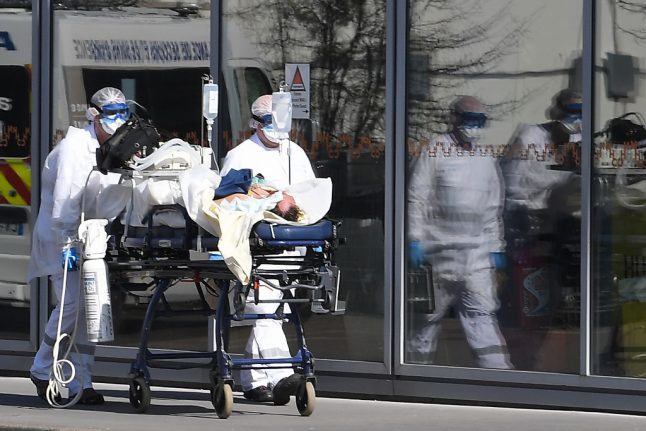The town of Mulhouse in the Haut-Rhin département in eastern France is to get a military hospital as local medical services struggle to cope with the number of cases.
The development was announced in the evening briefing from Director General of Health Jérome Salomon.
He confirmed that the death toll in France now stands at 372, with 108 deaths in the last 24 hours.
The total number of confirmed cases in France since the outbreak began is 10,995, although France is now only testing people who fall into certain groups.
On Thursday night, there were 4,761 people in hospital, 1,122 in intensive care. Half the people in intensive care are younger than 60.
READ ALSO Coronavirus testing in France – how does it work and who gets tested?

Salomon said that the number of cases is now doubling every four days and the virus is now spreading “rapidly and intensely.”
He echoed pleas from political leaders for people to respect the lockdown measures, saying the message was: “Stay at home, stay at home, stay at home.”
France has been on lockdown since Tuesday, with everyone ordered to stay at home and only venture out on essential errands.
However there has been widespread flouting of the measures, with 4,000 fines issued in the first full day.
READ ALSO France's coronavirus lockdown – what are the rules?
France's Interior Minister Christophe Castaner bluntly said those people breaking the rules were “idiots”.
He told Europe 1 radio: “There are people who think they are modern-day heroes by breaking the rules while they are in fact idiots.
Genevieve Chene, who heads France's public health agency, said two to four weeks of confinement are needed for the outbreak to be adequately contained.
“It is likely that it is indeed necessary to extend (the containment measures) in order for the braking to be sufficient,” Chene said.
The timing will depend largely on how closely people conform with the confinement measures, she said, adding that France's peak was likely to be around the middle or end of May.
The current lockdown lasts until the end of March, but the government has always made it clear that it would be extended if necessary.



 Please whitelist us to continue reading.
Please whitelist us to continue reading.
Member comments